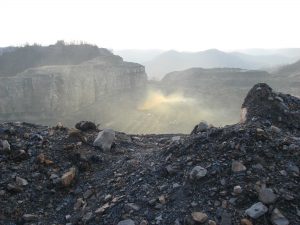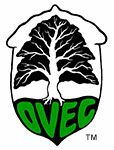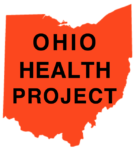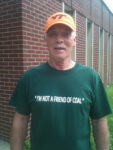- Like
- Digg
- Del
- Tumblr
- VKontakte
- Buffer
- Love This
- Odnoklassniki
- Meneame
- Blogger
- Amazon
- Yahoo Mail
- Gmail
- AOL
- Newsvine
- HackerNews
- Evernote
- MySpace
- Mail.ru
- Viadeo
- Line
- Comments
- Yummly
- SMS
- Viber
- Telegram
- Subscribe
- Skype
- Facebook Messenger
- Kakao
- LiveJournal
- Yammer
- Edgar
- Fintel
- Mix
- Instapaper
- Copy Link
|
|
|
|
For Immediate Release May 19, 2017 Vernon Haltom, CRMW, 304-952-4610 or vernon@crmw.net This press release is issued by the groups listed above. Groups Urge Citizens to Speak Up on Mountaintop Removal’s Impacts on Human Health LOGAN, W.Va.—Three citizens’ groups that for decades have called for an end to mountaintop removal coal mining are urging their members and concerned citizens to speak up on the human health impacts of mountaintop removal coal mining during a May 23 town hall meeting hosted by a study committee of the National Academy of Sciences (NAS). As reported in the Charleston Gazette in August, 2016, the committee is charged with examining “a ‘growing amount of academic research’ that suggests ‘possible correlations’ between increased public health risks for Appalachian residents and living near mountaintop removal coal mining.” The May 23 meeting is the second meeting of the committee as it seeks public input. It takes place at the Chief Logan Lodge, Hotel and Conference Center, 1000 Conference Center Drive, Logan, WV, 25601. The committee is to examine the potential human effects of surface coal mining operations in Central Appalachia. Citizens commonly refer to all large surface coal mines as mountaintop removal operations. The meeting consists of two parts, beginning at 12:35 p.m. with an “open session” where panelists will make presentations to the committee. If registered in advance, the public will be able to attend, but not ask questions during the open session, which ends at 4 p.m. The deadline to register in advance was Friday, May 19. The Town Hall forum at 6:30 requires no RSVP; opportunities to speak to the committee (3 minutes each) will be reserved at a first-come, first-serve basis. Please show up early to get your place in line! Panels include one with representatives of state agencies and one with coal industry representatives. Also on a panel are representatives of the three groups urging their members to speak up—Coal River Mountain Watch, OVEC (the Ohio Valley Environmental Coalition), and the West Virginia Highlands Conservancy. The second part of the meeting begins at 6:30 p.m. with a “town hall forum,” held, according to NAS, to “gain insights and information from people living in the surrounding communities. The National Academies study committee invites community members to attend and share their perspectives on this topic. The focus of the study is people living near coal-mining areas rather than on occupational health of coal mine workers.” Later in the summer, meetings will be held in other states. People may also comment online. “Mountaintop removal has ravaged the health of our communities for far too long,” says Coal River Mountain Watch executive director Vernon Haltom. “Enough solid science now tells us what common sense has told us for years: that breathing the fine, glassy silica dust from mountaintop removal sites is hazardous to our health. This ongoing practice needs to end now, and we hope the NAS committee comes to that conclusion for the sake of public health.” “A serious review of the dozens of health studies that have been conducted this past decade is long overdue and much appreciated,” says Cindy Rank of the West Virginia Highlands Conservancy. “We encourage the National Academies team to listen carefully to the community voices whose stories and fears will impress upon you the importance and urgency of your review and recommendations.” Haltom and Rank are two of the environmental group panelists. They will be joined by Natalie Thompson, OVEC’s executive director. “The blasting, the worry about the next flood, the loss of your homeplace and community, these and more take a heavy toll on health,” says Vivian Stockman, OVEC’s vice director. “The NAS committee is asking to hear from the public—unlike so many politicians—so please come tell them what you know about what mountaintop removal does to your health and wellbeing.” Background: People living near mountaintop removal operations have long claimed that this extreme method of coal mining is making them sick. In 2004, for the draft environmental impact statement on mountaintop removal /valley fill coal mining (MTR), citizen groups compiled people’s statements about their health and wellbeing and MTR. As the movement to end mountaintop removal grew, people’s demands that the health concerns be addressed grew, too. While politicians kept their heads in the sand, research accumulated, corroborating what residents were (and still are) saying: MTR is really bad for human health. People have pushed copies of all the studies into politician’s hands, in Charleston and in D.C. Folks have educated one another. Legislation, the Appalachian Community Health Emergency (ACHE) Act, has been introduced in the U.S. Congress. Rallies have been held. One of them, The People’s Foot, finally struck a chord. According to the Charleston Gazette, “The federal scientific effort also comes after West Virginia Department of Environmental Protection (WVDEP) Secretary Randy Huffman surprised citizen groups in March 2015—on the eve of a protest planned at his agency’s headquarters—by publicly saying that the health studies needed to be more closely examined by regulators, and the commitment less than a week later by Huffman and state Public Health Commissioner Dr. Rahul Gupta for a review of the issue.” The NAS study wasn’t formally announced until 2016. News articles noted that the study came at the request of the WV DEP. It was citizen pressure that brought DEP to finally make that request. We urge citizens to keep up the citizen pressure. Come out May 23 in Logan, or come to one of the other upcoming meetings in other states, or send in comments. ### |
|
|
OVEC Press List Subscribe/Unsubscribe |
|








